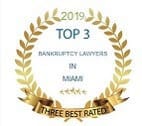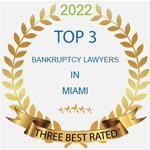Stop Creditor Harassment Today
Under the terms of the Fair Debt Collections Practices Act (FDCPA), debt collection agencies cannot engage in abusive, harassing, or threatening behavior when attempting to collect on a debt. This means collection agencies cannot repeatedly call you at home or work, send threatening letters, or use abusive language when talking to you over the phone.
Unfortunately, the FDCPA only really applies to third party collection agencies contracted by banks, retailers, medical service providers, and others to collect unpaid debt. As a result, the FDCPA does not apply to in-house collection departments of credit card companies, banks, car dealerships, hospitals, retailers, or other businesses.
While in-house collection departments cannot make threats or pose as police officers in order to collect unpaid debt, they can call repeatedly, send stern letter after stern letter, and report delinquent payments to Equifax, Experian, and TransUnion, harming your credit score.
Filing For Bankruptcy — Putting An End To Creditor Harassment
The most effective way to stop creditor harassment is filing for bankruptcy. If you are unable to make the minimum monthly payments on your credit cards, have fallen behind on your mortgage, or are facing the repossession of one or more of your cars, filing for Chapter 7 or Chapter 13 bankruptcy may be the best way to stop creditor harassment. Filing for bankruptcy initiates an automatic stay that requires collection agencies and creditors to immediately cease all collection and foreclosure actions against you.
Additionally, once you file for bankruptcy, creditors are no longer allowed to contact you but must go through your lawyer. At Kingcade Garcia McMaken, our office handles all inquiries and issues related to creditors and collection agencies regarding our client’s bankruptcy. If, for whatever reason, a collection agency or bank continues contacting you after you’ve filed for bankruptcy, we’re prepared to file for sanctions for the violation of the automatic stay, including seeking financial damages for our client under the terms of the FDCPA.
Creditors And Filing For Bankruptcy
Once you file for bankruptcy, creditors should have no direct contact with you until your scheduled 341 meeting with them. Any objections or concerns creditors have with your bankruptcy can be voiced at that time. However, the bankruptcy judge has final say in regard to whether or not the terms of your bankruptcy are acceptable. As your attorney, Kingcade Garcia McMaken defends and asserts your rights, representing you at the 341 meeting and afterwards. If creditors continue to harass you, we file the necessary motions with the court for sanctions and pursue further legal action if necessary.
Contact Bankruptcy Attorneys At Kingcade Garcia McMaken
If you are thinking of filing for bankruptcy or are being harassed by debt collection agencies and collection departments, contact bankruptcy attorneys at Kingcade Garcia McMaken today to schedule a free consultation to learn how we can help you.
















